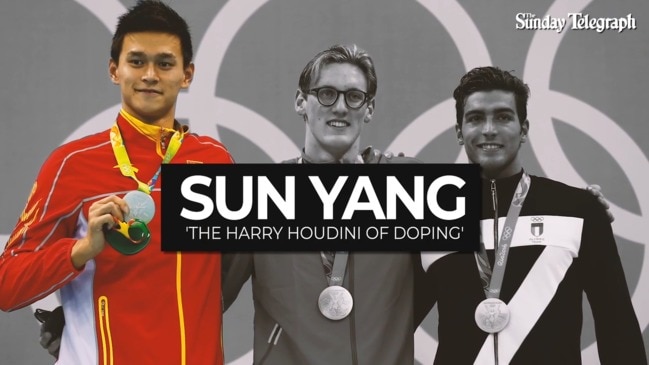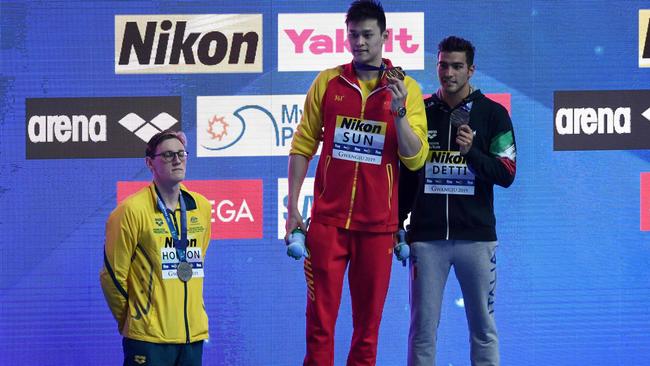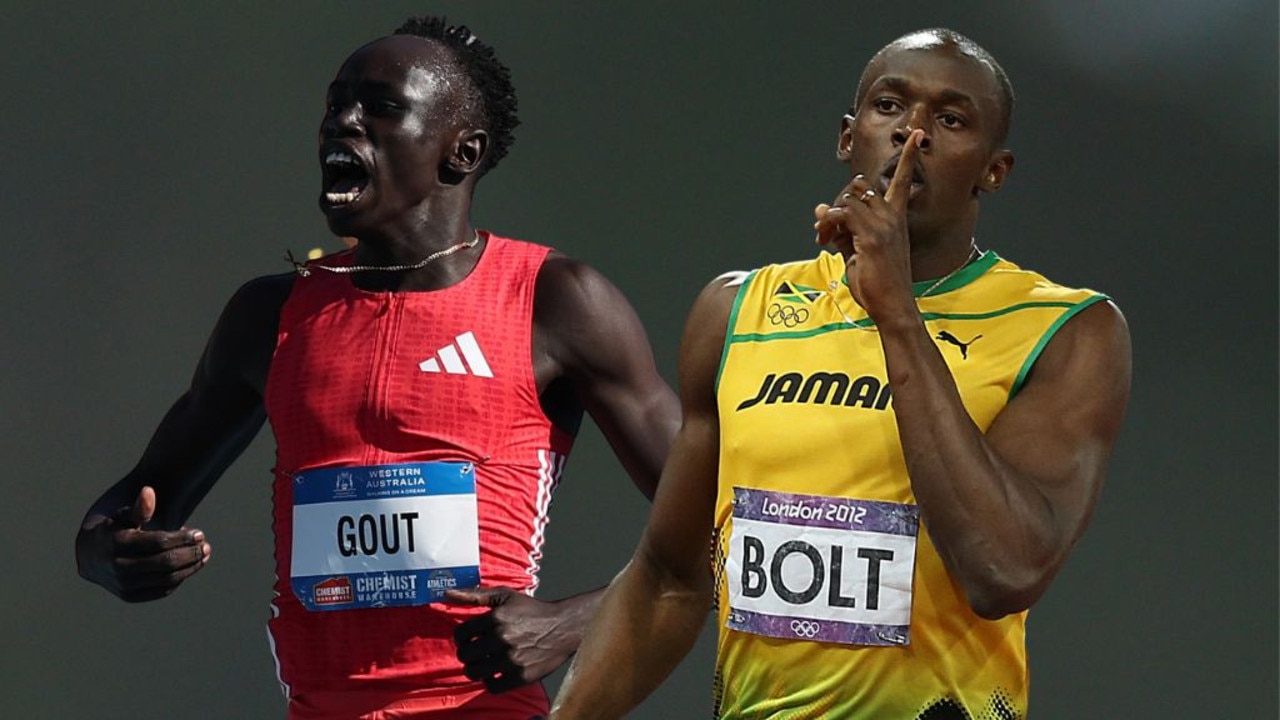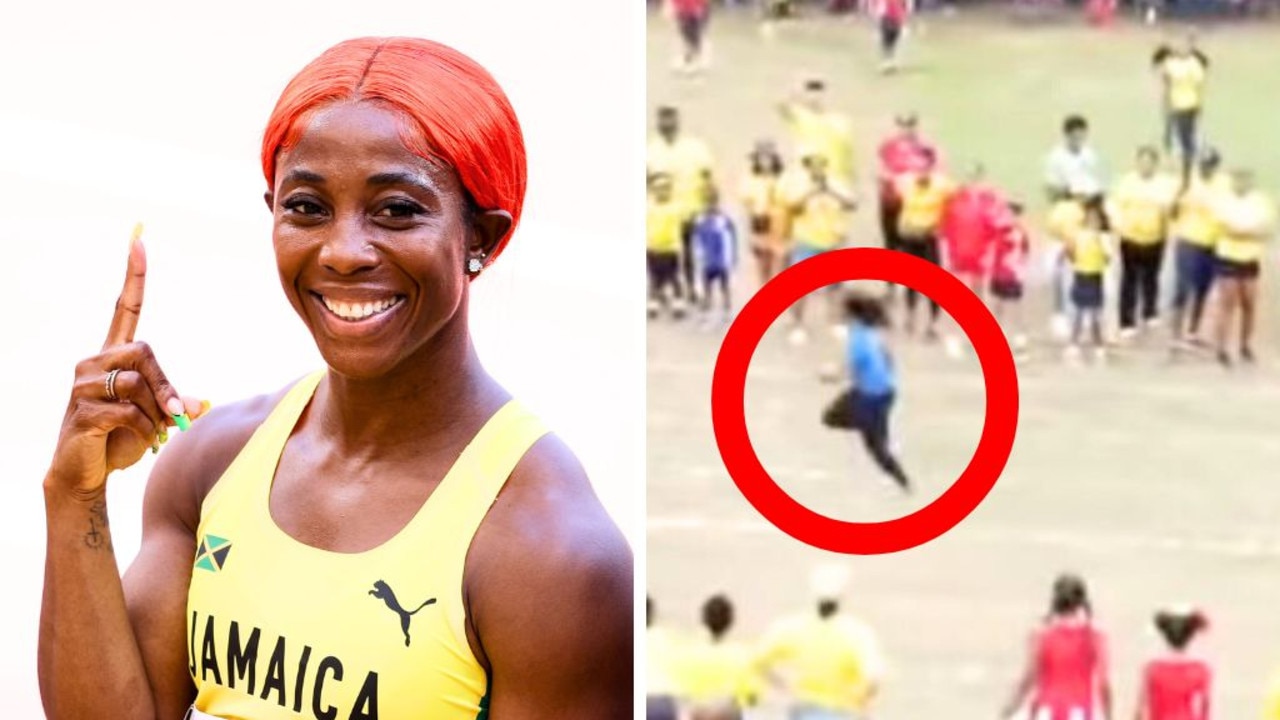Sun Yang suspension: Chinese swimmer should have been banned for more than just Tokyo
The reduced penalty given to Sun Yang is a joke and no more than a slap on the wrist. That, after his boorish actions, he could possibly swim at Paris 2024 is disgraceful, says Julian Linden.

Olympics
Don't miss out on the headlines from Olympics. Followed categories will be added to My News.
The decision to reduce Sun Yang’s ban and allow him to return in time to compete at the 2024 Paris Olympics is a slap in the face to everyone who cares about clean sport and is sick to death of world swimming’s dodgy double standards.
China’s favourite swimmer should have been banned for at least two Olympics and stripped of the gold medals he received at the 2019 world swimming championships after he was busted red-handed for tampering with his own doping samples before they could be checked for performance-enhancing drugs.
Forget the spin from the Chinese that he was standing up for the rights of swimmers, Sun’s boorish actions were an outrageous breach of the rules.

That’s why the Court of Arbitration for Sport (CAS) rightfully imposed the maximum four year ban after agreeing that he “acted recklessly” by refusing to allow the collectors to leave with his sample after a random out of competition test at his home in China in 2018.
The good news is that the ban ensures Sun will not be seen at next month’s Tokyo Olympics, but it’s outrageous that he could still swim at Paris in 2024 after the additional penalty he received for being a second time offender amounted to nothing more than a slap on the wrist.
At his previous appearance before CAS, in late 2019, Sun’s four-year ban was automatically doubled to eight years because of a previous doping offence, which occurred in 2014.
But under new rules introduced at the start of 2021, the panel was allowed to use a more flexible approach, and for reasons that won’t be known until the full judgment is released, the limp-wristed arbitrators only tacked on an extra three months.
Backdated to commence in February 2020, that means Sun will be free to race in the French capital in three years from now, when he will be 32, still young enough to make a comeback even though he’ll be older than most of his rivals.
Feted as a hero in his homeland, he will miss only one Olympics - the same as Shayna Jack - who was rubbed out for Tokyo after she tested positive to tiny traces of ligandrol that CAS agreed was ingested accidentally. Her appeal is next week.
Good news for the integrity of the games and sport but should be a lifetime ban. Multiple offences and that’s without taking a hammer out on the blood samples 🤦ðŸ¼â€â™‚ï¸ https://t.co/QUIQnYqhhi
— Adam Peaty MBE (@adam_peaty) June 22, 2021
It’s no wonder that advocates for clean sport are crying foul about the double standards with British Olympic champion Adam Peaty encapsulating the frustration when he tweeted: “Good news for the integrity of the games and sport but should be a lifetime ban. Multiple offences and that’s without taking a hammer out on the blood samples”
He staged a peaceful, silent protest against the decision by swimming’s world governing body FINA to allow Sun to compete at the 2019 world championships when his case was still pending.
Sun narrowly beat Horton in the 400m freestyle final and has been allowed to keep the gold medal that should be handed over to the Australian after swimming’s world governing body FINA promised to look into the issue but then did nothing.

Questions need to be asked of Australia’s Matt Dunn, who is now one of FINA’s highest-ranking officials, recently promoted to second vice-president, though no-one would know it.
When it comes to speaking up for Australian swimmers, Dunn has often been silent. He has never made a peep publicly about Horton or Jack.
A former teammate of Ian Thorpe, Dunn has also been missing in action since News Corp’s bombshell investigation into how high-ranking FINA officials leaked Thorpe’s confidential medical records more than a decade ago, years before Dunn joined FINA.
Now under the leadership of Kuwaiti pilot Husain Al Musallam, FINA has vowed to introduce long awaited reforms, including slashing the lavish perks given to its executives.
They have also pledged to establish new reform committees, but the wait continues on whether they will ever carry through on their promises.
Sun Yang banned again in doping backflip
- Jacquelin Magnay
Controversial Chinese swim star Sun Yang will miss the Tokyo Olympics after the Court of Arbitration for Sport handed down a four-year ban in a retrial of his drawn out drugs case.
CAS on Tuesday ruled that Sun, a triple Olympic gold medallist, had acted recklessly when he refused to allow anti-doping officials to take a sample of his blood for analysis late one evening in September 2018, and has banned him from competition until February 2024.
The judgement said the new CAS panel found “to its comfortable satisfaction” that Sun had committed anti-doping violations by evading, refusing or failing to provide a drugs sample, and by tampering with doping control.
The CAS judges backdated the sanction from February 2020 when the retrial of his drugs case began after the Chinese swimmer successfully appealed to the Swiss Federal Tribunal.

He had claimed the original CAS decision – which handed down an eight year ban – had been tainted because one member of the three judges had shown anti-Chinese bias on social media.
Sun, now 28, could return to the sport and be eligible for the Paris 2024 Olympic Games under the new sanction.
Any anticipation of a re-run of the bitter feud between Sun and Australia’s 400m freestyle star Mack Horton at the Tokyo Olympics had already evaporated after Horton failed to qualify for his pet event at the Australian Swimming trials earlier this month.
Sun’s drug case has been mired in drama ever since he angrily questioned the credentials of one of the drug testers who arrived for an unannounced test three years ago. In the ensuing furore one of Sun’s entourage team smashed the blood sample with a hammer so that it couldn’t be tested.
Initially Sun was given a warning about his conduct, but the World Anti-Doping Agency appealed the case to CAS. However the CAS hearing was so drawn out, Sun was allowed to compete at the 2019 World Championships where he claimed his fourth 400m freestyle world title.
Horton, who was second in that swim, refused to stand on the podium in protest that Sun had been allowed to compete. Horton had previously called Sun a drug cheat before the Rio Olympics, referring to the Chinese swimmer’s first drugs ban for taking a stimulant back in 2014.
WADA director general Olivier Niggli said on Tuesday: “The decision by the Swiss Federal Tribunal to set aside the CAS award was limited to a challenge made against the chair of the CAS panel and had nothing to do with the substance of this case. Today’s ruling reconfirms WADA’s position in relation to the original FINA ruling, which was that there were a number of points that were inconsistent with the code. Today’s CAS ruling validates those concerns.”
The world swimming body FINA said in a statement that it would enforce the CAS decision.
They said: “FINA remains committed to the protection of all clean aquatics athletes worldwide and will carefully consider the 90-page award.”



